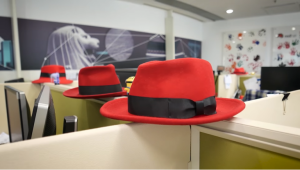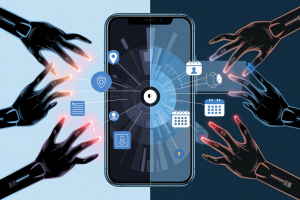Rent-a-Friend: In Search of a Cultural Scapegoat
![]() A friend of Art and I, Dr. Melissa Clothier, put a post up on her blog today talking about an interesting trend in society fueled in part by social media and our ever splintering layers of technology: Rent-a-friends:
A friend of Art and I, Dr. Melissa Clothier, put a post up on her blog today talking about an interesting trend in society fueled in part by social media and our ever splintering layers of technology: Rent-a-friends:
This Rent-A-Friend concept is intriguing. So rather than fussing with some person with a boring, involved life-story, call up Joe and go to the movie. You hang out, talk about the movie, have some temporary company and then, boom, done. No sordid break-up stories. No diatribes against back waxing and Representative Massa. No queries into your grandma’s health. No enduring pictures of the kids, or worse, vacation.
From the original post at the Las Vegas Sun:
We’re lonely. One in four people said they had no close friends in a 2004 survey. Everybody else said they had about two. And that’s down one. In 1985, people reported having three close friends or confidants on average. So in 20 years, we collectively lost a friend, and gained a billion Facebook pals.
Wray has speculated that the things that defined Las Vegas during the past 25 years — wild growth, population booms, demographic shifts, transience — came too fast for community cohesion. Almost 1.2 million people moved to Clark County in about 15 years. How many felt rootless and alone, marching in the middle of that steamroller parade?
Loneliness is an alarm signal, no different from hunger, Cacioppo says. The feeling exists as a reminder to join the group — there’s safety in numbers, and the gene pool evaporates without people to fill it. So why is loneliness so punishing? Because rejoining a group is delicate. When shunned primates try to rush back into their packs, Cacioppo notes, they’re often attacked or killed. The group doesn’t want your infection.
So the onus is entirely in the lonely person — heal your own wounds, or wither.
Going online, by the way, isn’t enough. Lonely people who look for answers in computer-mediated friendships, Cacioppo says, are like starving people eating celery: “It’s better than nothing, but there’s no long-term sustenance.”
Typically, I don’t comment on such tangentially-related-to-tech topics, but this one in particular caught my eye, and in the mind-broadening spirit of the approaching SxSW festival, I felt compelled to add my thoughts on it.
![]() The speculation and the common angle being taken is that we’re a driven society, and that’s why we’re so lonely. We’re driven to compete, driven to win, driven to careers, driven to be mobile, and driven to be busy. And while we’re so busy being driven, we forget how to be social in meatspace.
The speculation and the common angle being taken is that we’re a driven society, and that’s why we’re so lonely. We’re driven to compete, driven to win, driven to careers, driven to be mobile, and driven to be busy. And while we’re so busy being driven, we forget how to be social in meatspace.
Predictably, I don’t buy the common consensus on this topic. Certainly all these factors play into it, as per what we know from Alvin Toffler’s Future Shock hypothesis, but I think the biggest factor has to be the consumerization of our society. The Facebook’s of the world play less of a part than the niche social networks and five-hundred person marketing niche and the blog dedicated to Google products released in the enterprise space and the Ning group for underwater basket weavers in love with alt.bald.sexy.captains. You catch my drift?
With the advent of cheap, on-demand, global communications, we’ve shrunk the entire planet to the distance between us and that laptop at the other end of the couch. As such, in a short decade or so, we’ve gone from the mainstream not understanding what the internet is to it being considered a basic right by four out of five citizens.
And with that apparent basic human right comes uber-specific needs in our social lives. There are only, in some cases, a few hundred people in the world who truly speak our vernacular.
Loren Feldman and I were commenting on this topic yesterday in an unrelated phone conversation. When we step away from our Twitter streams into the real world, no one aside from our wives have any inkling who Leo Laporte, Robert Scoble and Mike Arrington are (regardless of your opinion on any of them). To many of us, even those of us in the community here at SiliconANGLE, the sun rises at Techcrunch and sets at Mashable. That micro-celebrity status counts for exactly squat at the local park, Walmart or church study group.
I don’t cast aspersions on this cultural phenomenon. Quite honestly, online, for many years of my adolescent era, was the only place I truly felt at home. It seems like, though, all these other pieces are looking for cultural scapegoats in all the wrong places, and seem to suggest that this is a bad thing. I think, they’ll find, that while we may not all be flush with meatspace friends, we’re more social now than ever.
A message from John Furrier, co-founder of SiliconANGLE:
Your vote of support is important to us and it helps us keep the content FREE.
One click below supports our mission to provide free, deep, and relevant content.
Join our community on YouTube
Join the community that includes more than 15,000 #CubeAlumni experts, including Amazon.com CEO Andy Jassy, Dell Technologies founder and CEO Michael Dell, Intel CEO Pat Gelsinger, and many more luminaries and experts.
THANK YOU









